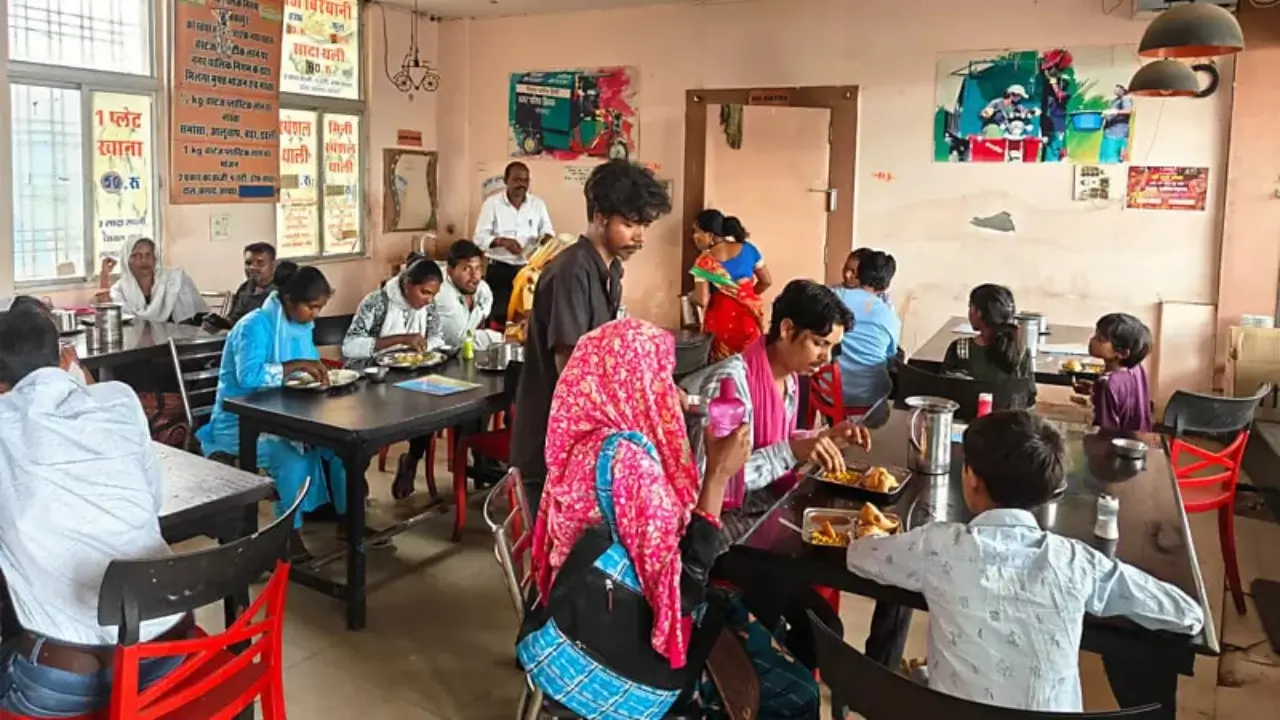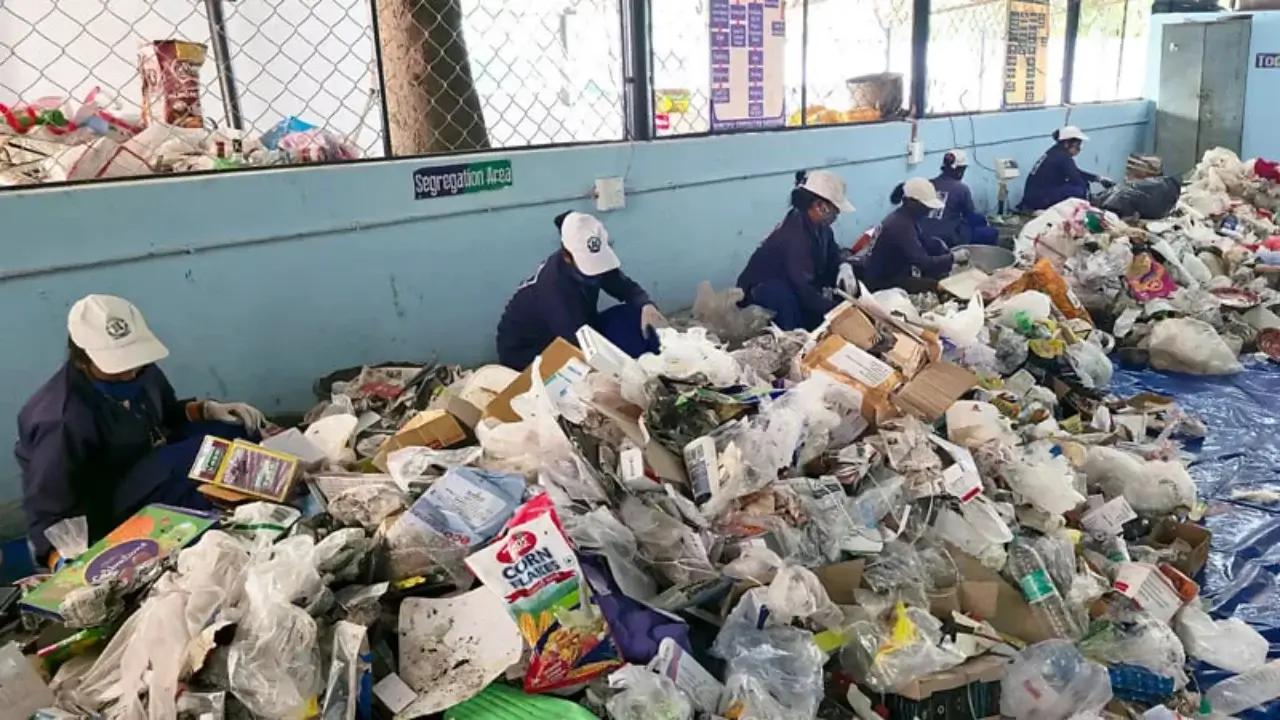
In India, an unusual project – the “Garbage cafe” experiment – is radically changing the lives of local residents and the urban environment. In the city of Ambikapur, this cafe does not require money from visitors: they receive a full meal or breakfast in exchange for plastic waste. This initiative is significant because it not only helps to clean the city of plastic but also supports low-income citizens.
The rules are very simple: a person who hands over one kilogram of plastic receives a full meal consisting of rice, vegetables, curry, dal, roti, salad, and pickles. For half a kilogram of plastic, breakfast is provided. This system has become not only a free source of food for people but also an additional incentive to collect waste.
Launched in Ambikapur in 2019, the “Garbage cafe” is financed by the city authorities. Since then, about 23 tons of plastic have been collected and effectively recycled. If in 2019 the city sent 5.4 tons of plastic annually to the landfill, by 2024 this figure had dropped to 2 tons. As a result, Ambikapur has come to be regarded as one of the cleanest cities in India. Moreover, a 16-hectare landfill was closed and replaced with a park.

Alongside the cafe initiative, 480 women in the city collect waste door-to-door every day, earning 8–10 thousand rupees a month. In addition, at 20 special centers, waste is sorted into 60 categories. Plastic is directed to road construction or recycling plants, organic waste is composted, and a small portion of non-recyclable waste is sent to cement plants as fuel.
The Ambikapur experience has also been adopted in other cities. For example, in Siliguri (West Bengal), food is given in exchange for plastic; in Mulugu (Telangana), 1 kg of plastic equals 1 kg of rice; in Mysuru (Karnataka), 500 grams of plastic earns a breakfast in a state canteen. In Uttar Pradesh, women are provided with hygiene products in exchange for plastic. A similar program exists even in Cambodia, where people receive rice in exchange for plastic collected around Tonle Sap Lake.
According to the UN, more than 400 million tons of plastic are produced worldwide each year, and only 9 percent is recycled. In India, plastic consumption is very high, and in many regions, waste is not properly sorted. Therefore, since 2022, the government has begun gradually banning single-use plastic products (bags, cups, dishes).
In Uzbekistan, waste management is also an urgent issue: in Tashkent alone, more than 1.5 million tons of household waste are collected annually, most of which is still sent to landfills. Experts believe that if initiatives similar to Ambikapur’s experience are implemented in the country, it could help reduce waste and raise the ecological awareness of the population.
Read “Zamin” on Telegram!Users of Меҳмон are not allowed to comment this publication.













